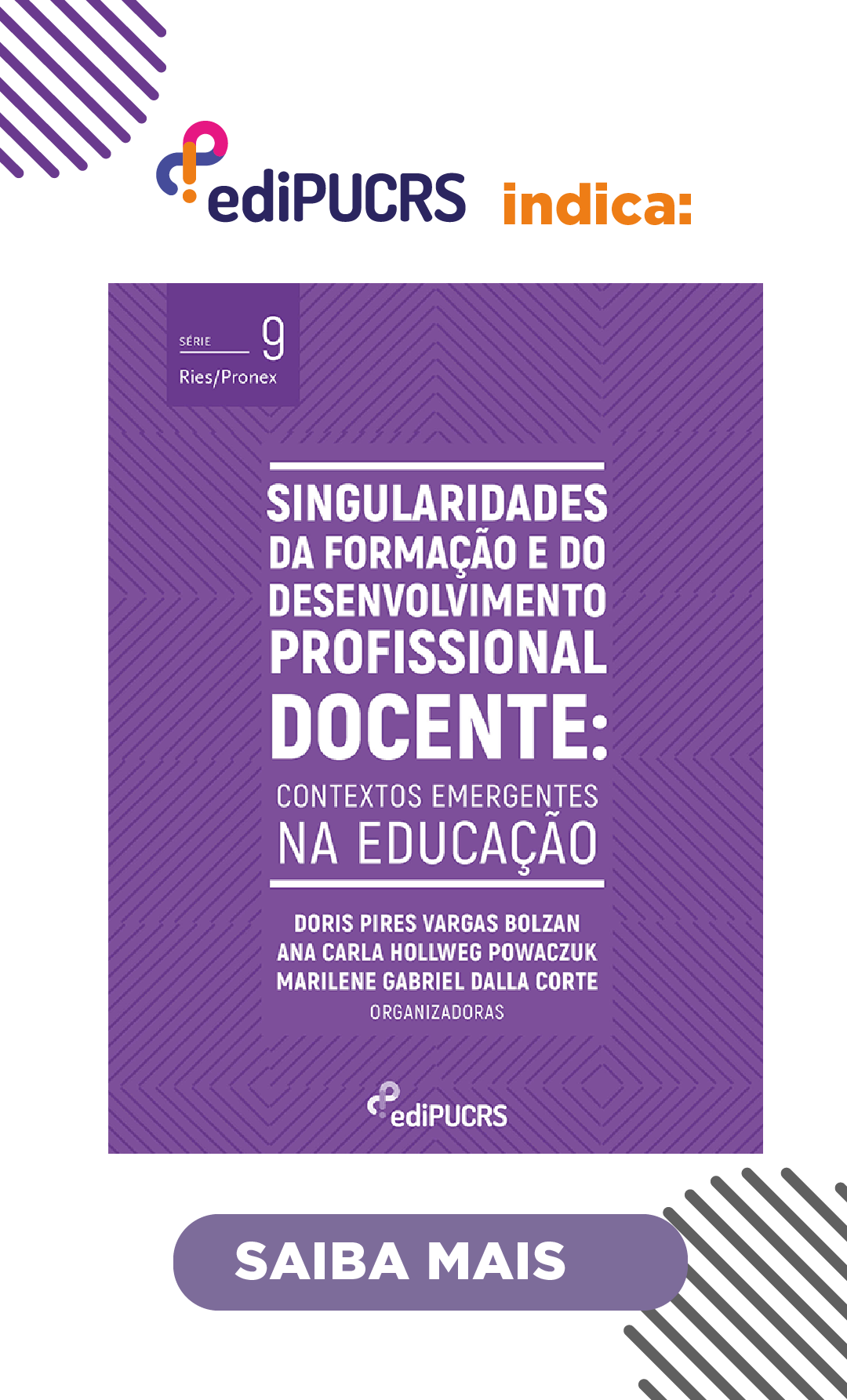Digital resource in learning of the deaf: reading and writing
DOI:
https://doi.org/10.15448/2179-8435.2015.2.20599Keywords:
Digital, Deaf, Reading.Abstract
This article presents a study on the inclusion on the laws, and then deals with the education in the development of the deaf, discussing the use of digital resource during this process. The study describes through a qualitative research results achieved through responses acquired in an interview with deaf students. It aims to understand how this individual uses digital resource, especially to be able to think how he could take advantage of distance education considering the limitations of their disability. The results obtained in the interview with the deaf students point out that the greatest difficulty lies in the texts chosen for lessons because they are long, because they do not completely dominate the Portuguese language because their language is pounds, it makes reading more difficult and laborious. Also, got some suggestions for the use of more qualified way, the tools used in the digital environment, with the goal of improving student learning.
Downloads
References
ARAÚJO, K. S. S; HETKOWSKI, T. M. Educação Inclusiva: o direito. Recife: Editora Construir, 2005. Disponível:
construirnoticias.com.br/asp/materia.asp?id=980>. Acesso em: 20 ago. 2015.
ARANHA, Maria Lúcia de Arruda. História da educação e da pedagogia: geral e Brasil. São Paulo: Moderna, 2006.
BARDIN, L. Análise de conteúdo. Portugal: Edições 70, 2010.
BERNARDINO, Elidéa. Absurdo ou lógica? Os surdos e sua produção linguística. Belo Horizonte: Profetizando Vida, 2000.
BRASIL. Lei de Diretrizes e Bases da Educação: 9.394/96. Disponível em: <http://www.planalto.gov.br/ccivil_03/Leis/L9394.htm>.
Acesso em: 13 out. 2014.
BRASIL. Resolução CNE/CEB nº 4, de 13 de julho de 2010. Disponível em: http://portal.mec.gov.br/index.php?option=com_content&v
iew=article&id=14906&Itemid=866>. Acesso em: 13 out. 2014.
BRASIL. Ministério da Educação, Conselho Nacional de Educação, Câmara de Educação Básica (CNE e CNB), 2001. Disponível em:
em: 17 out. 2014.
CARVALHO, Rosita Edler. Educação inclusiva: com os pingos nos “is”. Porto Alegre: Mediação, 2004.
CHIZZOTTI, Antônio. Pesquisa em Ciências Humanas e Sociais. São Paulo: Cortez, 2001.
FERNADES, Maria. Os segredos da alfabetização. São Paulo: Cortez, 2010.
FREITAS, Soraia; RODRIGUES, David; KREBS, Ruy. Educação inclusiva e necessidades educacionais especiais. Santa Maria: UFSM, 2005.
GUERRA, Isabel Carvalho. Pesquisa qualitativa e análise de conteúdo: sentidos e formas de uso. Portugal: Principia, 2006.
HONORA, Márcia; FRIZANCO, Mary L. Esclarecendo as deficiências: aspectos teóricos e práticos para contribuir com uma sociedade
inclusiva. São Paulo: Ciranda Cultural, 2008.
KARNOPP, Lodenir Becker; KLEIN, Madalena. A lingua na educação do surdo. Porto Alegre: SEED, 2005.
LIBÓRIO, Renata Maria Coimbra; CASTRO, Bernardo Monteiro de. Dialogando sobre preconceito, políticas de inclusão escolar
e formação de professores. In: SILVA, Divino José da; LIBÓRIO, Renata Maria Coimbra (Orgs.). Valores, preconceito e práticas
educativas. São Paulo: Casa do Psicólogo, 2005.
MANTOAN, Maria. Inclusão escolar: o que é? Porquê? Como fazer? São Paulo: Moderna 2003.
MAZZOTTA, Marcos José Silveira. Educação Especial no Brasil: História e Políticas Públicas. São Paulo: Cortez, 2005.
MINAYO, Maria Cecília de Souza (Org.). Pesquisa Social: teoria, método e criatividade. Petrópolis: Vozes, 1998.
QUADROS, Ronice Müller de. Educação de Surdos: a aquisição da linguagem. Porto Alegre: Artes Médicas. 1997.
ROESH; Azevedo. Projeto de estágio e de pesquisa em administração. São Paulo: Atlas, 2009.
SASSAKI, R. K. Construindo uma sociedade para todos. Rio de Janeiro: WVA, 1997.





